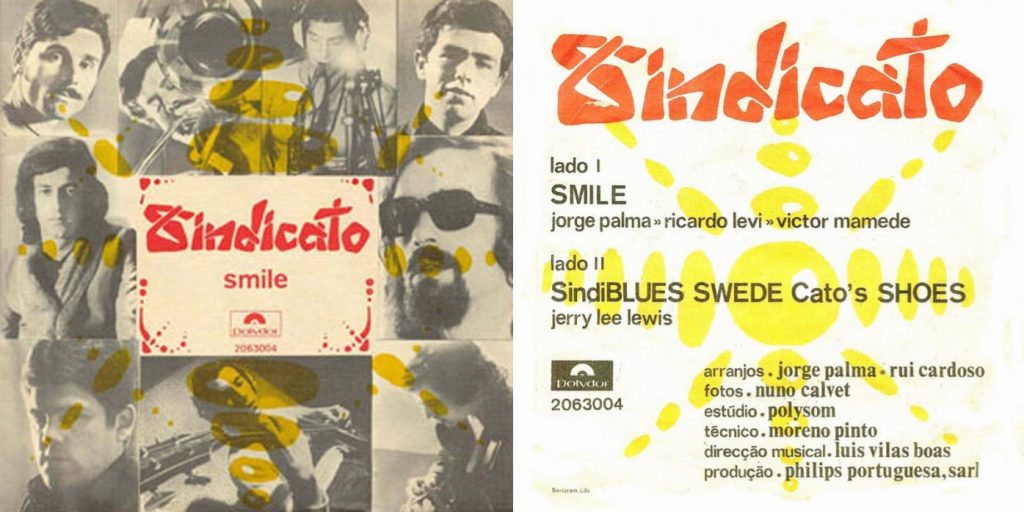Sindicato were created at the end of the 1960s. This project was practically a “who’s who” of national rock at the time.
Ricardo Levy and Júlio Gomes (guitars), Edmundo Falé (vocals, ex-Ekos and Conjunto Mistério), João Maló (guitar, ex-Chinchilas), Eduardo Oliveira (aka Necas, who would participate in the recordings of the band’s first LP) passed through their ranks. Quarteto 1111, later being one of the members of NZZN), Vítor Mamede (drums, ex-Chinchilas and future member of Status, Quarteto 1111 and Green Windows), Rui Cardoso (saxophone, linked to jazz since the late 50s and author of soundtracks for several Portuguese films) and Rão Kyao (who had already been part of Bossa Jazz 3, leaving after 25 de Abril for a recognized solo career), as well as two other musicians in the wind section, Luís Pereira ( trumpet) and Cirilo Coutinho (trombone), the latter now deceased, as well as Jorge Palma, who was keyboardist and singer for Sindicato, a rock band with ambitions to be a kind of Portuguese Blood Sweat & Tears, to which the inclusion of a brass section which included Rão Kyao.
The fact that Sindicato had to coordinate such a different series of sounds inspired Palma to work as an arranger, a career that would help him survive during part of the seventies, when he returned, after the 25th of April, from a year-long stay in Denmark to avoid the call for colonial war.
At a time when first Blood, Sweat And Tears and then Chicago emerged with rock marked by jazz sounds, Sindicato also tried, like the O Controle project, to show that in Portugal there was a path to follow in this area. In terms of record editions, they would only leave the recording of “Smile”, from 1971 and two songs from Paulo de Carvalho’s collection published in the same year by Phonogram.
The first of these albums featured, on side A, the original composition of the same name, with a musical progression somewhat indebted to free-jazz and, on side B, a very particular reading of “Blue Suede Shoes”, the original by Carl Perkins. The production was in charge of Luís Villas-Boas, patron of Portuguese jazz who, at the time, collaborated with the label.
Sindicato was responsible for creating the instrumental versions of “Flor Sem Tempo” and “Walk On the Grass”. In the summer of 1971, Sindicato participated in the Vilar de Mouros Festival performing, on the weekend dedicated to “modern music for youth” (7th and 8th August).
With Edmundo Falé as vocalist, the group presented its music to an audience that did not understand the jazzy and elaborate wanderings of the musicians, but that later did not give applause to the concert by Manfred Mann’s Earth Band (which was still six months away from the edition of its debut album).
In 1972, the band ended its career.






Ο τρόπος που γράφεις είναι τόσο ευχάριστος και εύκολος να ακολουθηθεί, ενώ ταυτόχρονα καταφέρνεις να διατηρείς το ενδιαφέρον του αναγνώστη σε όλο το άρθρο. Μια πραγματική απόλαυση να διαβάζω τα κείμενά σου